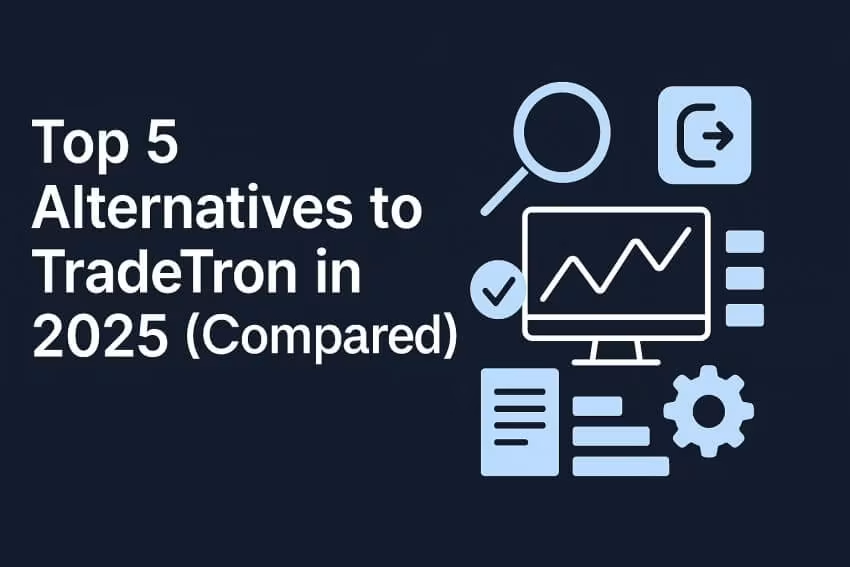Algorithmic trading has become a popular trend in financial markets, especially in India due to its fast-paced nature. It involves the use of technological and automated systems to place trades on behalf of a trader with the help of certain predetermined conditions, which helps the trader improve his trading strategies. However, not all those who engage in algorithmic trading do achieve the intended success. Some algorithmic traders succeed while others do not, and these differences can be attributed to the differences in their approaches and knowledge of the market. This blog discusses some of the key attributes and practices that one needs to know when answering the question of how to become an algo trader who is successful.
Thorough Understanding of Financial Markets
To succeed in algo trading, one must first understand what financial markets are. An algo trader must have sound knowledge of stocks, futures, options, and numerous other trading instruments. Without understanding the behaviour of these markets, no algorithm can effectively operate.
For those wondering how to become an algo trader, a strong educational foundation in finance or economics can help, but continuous learning is equally important. Being an algo trader in India, and elsewhere, means that one has also to keep abreast with the latest news concerning the policy changes and even global economic developments that shape the market.
Risk Management and Discipline
The speed at which trades can be executed, using an algorithm, is much faster than if it were done manually. On the other hand, the mechanistic way of trading can result in losses if risk controls are not put in place. Any algo trader worth their salt knows that implementing strong risk management is the best way to evade unpleasant situations.
Risk management entails determining stop-loss levels, adjusting position sizing, and spreading investments among various assets. This ensures that even in cases when it doesn’t go as planned, the damages do not extend too far. The foremost algorithm trading platform in India permits users to configure these risk settings within the algorithms.
In addition, one has to observe a certain degree of discipline. They should refrain from excessive modifications of the algorithm or letting emotions dictate decisions. An algorithm will perform best when left to execute its thoroughly tested pre-set rules without human interference.
Backtesting and Optimisation
Backtesting of strategies is one of the key components of effective algo trading. When backtesting, one evaluates an algorithm with respect to past market data so as to determine how it would have performed under such conditions. This enables traders to make adjustments to their plans before employing them in the actual markets.
Traders on the uTrade Algos platform enjoy advanced backtesting options, enabling them to test their algorithms in various market environments. This enables one to detect the weaknesses of the strategy and adjust it to perform better.
It is also important to note that backtesting by itself is inadequate. To be a successful algo trader, there is a strategy that a trader has to use and that strategy has to be adjusted constantly due to the changes in the market. This practice helps to ensure that the algorithm is still working when there is a change in the market.
Adaptability to Changing Market Conditions
Different market conditions favour different types of algo trading strategies. Financial markets are dynamic in nature, with variables such as economic releases, changes in interest rates, politics, and other regions’ markets sporadically affecting the turn of events.
Algo traders in India, and across the world, should be dynamic, thereby changing their algorithms according to the market scenario. This also means that the assumptions of the model have to be changed from time to time, ensuring that it remains effective in both bullish and bearish markets. As a result, platforms like uTrade Algos provide the flexibility needed to make real-time adjustments, ensuring that your strategy can evolve with the market.
Focus on Data-Driven Decision Making
The primary focus of algorithmic trading is the use of data. Statistical analysis and modelling play a predominant role in the functioning of any successful algorithmic trading operator. It concerns the building of such algorithms that utilise previous prices, other market values, and technical characteristics to forecast actions without external input.
In contrast to experiences, successful algorithmic trading in India is based on data. They do this using algo trader software, which allows them to sift through big data, find algorithms, and optimise their strategies. Most algo trading platforms provide some level of data analysis functionalities for their users.
Efficient Execution and Low Latency
In algorithmic trading, time is of the essence. The market can shift in seconds, and to make sure that these short opportunities are exploited, the algo trader has to be provided with systems that are low latency. Low latency means that the trades are placed in a matter of seconds without any waiting period that may cause a loss in an opportunity to trade.
In India, and elsewhere, successful algo traders are facilitated by proprietary algo trader apps and other platforms that are optimised for fast and seamless execution of trades. Many algo trading platforms in India help to execute strategies fast, thus helping to improve efficiency of trade.
Continuous Learning and Strategy Development
The process of algorithm creation is only one of the many steps on the path of an algorithmic trader. The most experienced traders know that one of the key factors of success is the ability to read and learn. After all, even the markets change, there are new tools offered and technology evolves in a way that changes the system of work of the algorithms.
In India, and across the world, the algo traders who want to be successful tend to be those who invest their time learning about the newest trading strategies and tools, as well as how the markets are analysed. They also make an effort to belong to the trading community and enhance their knowledge by exchanging information with other traders.
Another recommendation that future algo traders could find helpful is the use of an online algo trading service with provisions for training and a network of traders. For example, the uTrade Algos app contains a wide array of facilities that aim to assist both newbies and veteran traders in honing their craft and learning what is new within the industry.
To sum up, success in algo trading requires a combination of financial knowledge, technological proficiency, and a disciplined approach. While learning how to become an algo trader may seem daunting, platforms like uTrade Algos provide the tools, resources, and support to help traders succeed in the competitive world of algorithmic trading. With the right strategy, continuous learning, and the proper trading tools, anyone can embark on a successful algo trading journey.












